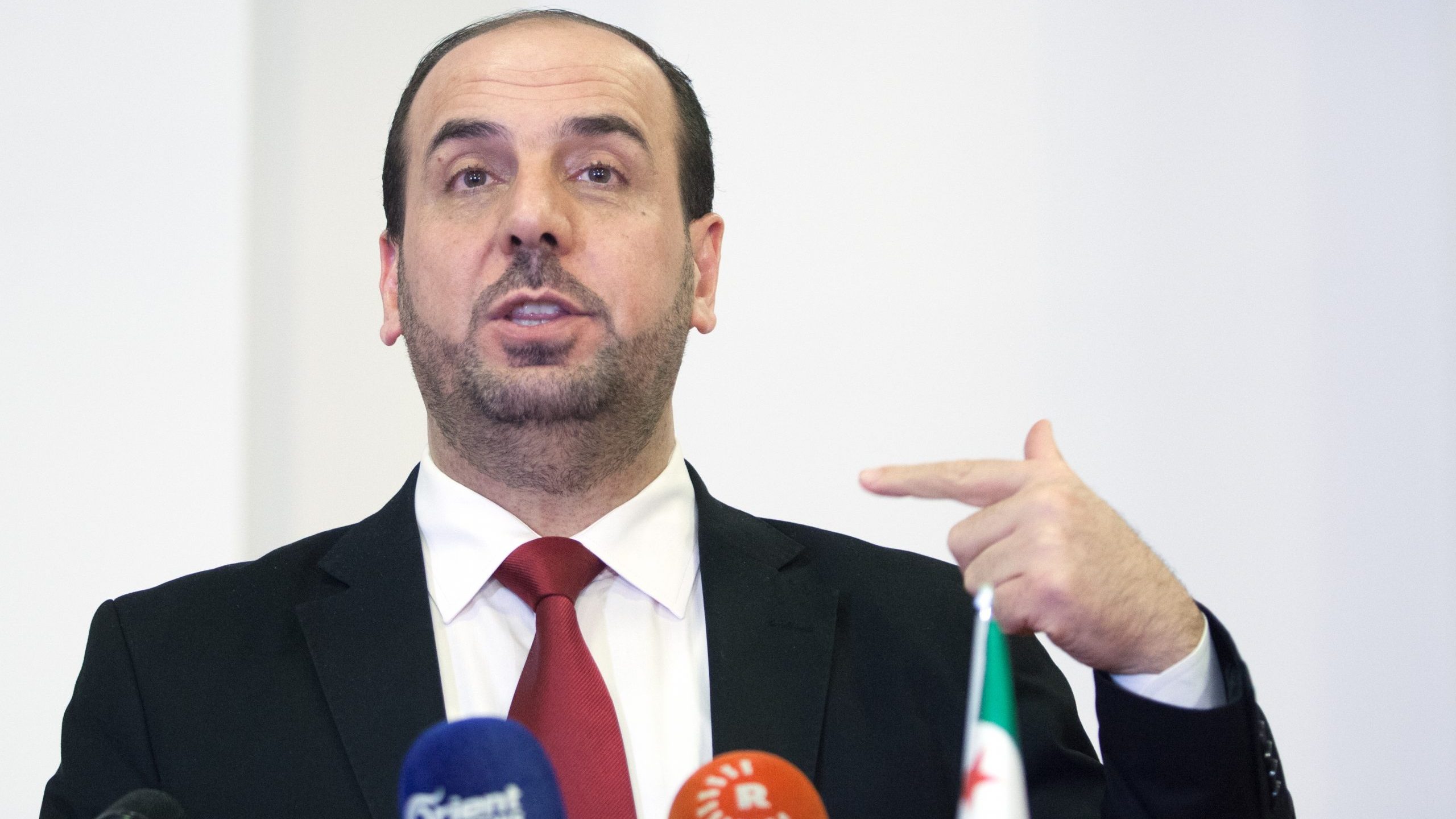Confidential sources from within the Syrian opposition coalition have revealed to al-Hal Net the truth behind news circulating on Saturday, concerning Nasr Hariri’s removal as a member of the negotiating body. Hariri was the head of the former negotiating body, in which the coalition has a broad influence.
The sources confirmed that Salem al-Meslet, the coalition’s head, has planned to issue an internal decision this week requiring the removal of Nasr Hariri (currently a member of the coalition’s general body) from his membership in the “negotiating body.” `The name of an alternative appointee has not yet been disclosed.
The sources said that the more important decision was to isolate Hariri and the consensus behind him, as opposed to the identity of an alternative appointee. The decision considered that Hariri should have been removed after he stopped serving as the coalition’s head (in mid-July). The delay occurred, however, due to external factors operating on the authority and the composition of the political body.]
Read Also: Infighting Between Syrian National Army Factions Continues
Hariri’s removal will serve mainly as an “important” step in the coalition presidency’s attempts to move closer to Saudi Arabia. Sources revealed that Meslet’s ascendancy to the coalition’s presidency followed a series of agreements between blocks both inside and outside the coalition. Countries in the region agreed to reach consensus positions with the coalition as soon as the leader became the coalition’s president, provided that the negotiating body removed Hariri.
Al-Hal Net sources said that Hariri’s removal comes at a time when the negotiating body’s political standpoint aligns once more with the meeting between the “coordinating body” and the coalition in Istanbul, which occurred last November. Hariri’s removal from the opposition political scene’s institutions, as well as his isolation from the general negotiating body, will ease internal tensions, the sources said.
Hariri had been the negotiating body’s head since November 2017, remaining in office and avoiding all legal safeguards until June 2020. The coalition has seen its work disrupted (which continues to date) due to the refusal of several blocs (Cairo Platform, Coordination Body, Moscow Platform, and some independent and military figures) to attend meetings. These refusals occurred due to organizational irregularities following the election of the new independent bloc in late 2019, as well as the extension of Hariri’s presidency of the negotiating body.
This article was translated and edited by The Syrian Observer. The Syrian Observer has not verified the content of this story. Responsibility for the information and views set out in this article lies entirely with the author.


